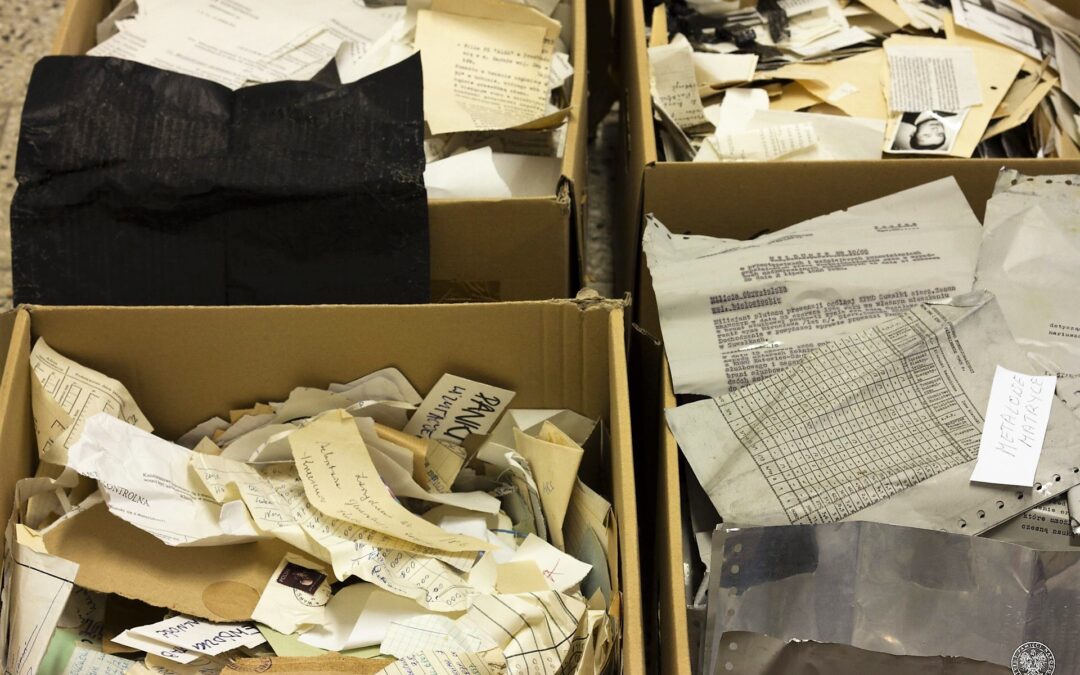It took archivists at Poland’s state historical institute 15 years to complete the herculean task of piecing together thousands of communist-era secret police files destroyed after 1989. Their painstaking work provided not only valuable historical insights but also evidence in a number of legal cases.
A total of 6,714 archival units were recovered, Monika Kobylańska – from the Katowice branch of the Institute of National Remembrance (IPN) – told the Rzeczpospolita daily.
Each of the files has been analysed for its potential relevance to lustration proceedings – the name given to the legal process whereby people in public office are assessed to see whether they previously collaborated with the communist regime and if they tried to hide this fact in official declarations.
Cross-referencing the reconstructed files with the names of the 470,000 people who have submitted lustration declarations allowed new material to be contributed to six legal cases, Kobylańska told the newspaper.
In November 1989, a few months after the semi-free elections that paved the way for Poland’s transition to democracy, communist interior minister Czesław Kiszczak ordered the liquidation of several departments of the Security Service (SB), Poland’s feared secret police.
A few weeks earlier, Kiszczak had already ordered the destruction of their archives, writes Rzeczpospolita. In January 1990, when parliament learnt of this fact, the operation was suspended.
In Katowice, 267 bags of shredded files were then handed over to the state intelligence agency before later being given to the IPN, which was established in 1998 and empowered not only to research and educate on Poland’s communist-era history but also given prosecutorial powers.
In 2006, the IPN’s archivists began the work of piecing together the thousands of documents “like a jigsaw puzzle”, reports Rzeczpospolita. Since then, they have reconstructed 125 metres of files and 170 metres of record cards.
Some of the documents date back to the immediate post-war period and contain information on cases made against former members of the wartime underground resistance.
Many files from the 1980s pertain to figures associated with the Solidarity movement, including surveillance photographs. There are also over 1,000 operational records relating to priests.
Main image credi: IPN

Daniel Tilles is editor-in-chief of Notes from Poland. He has written on Polish affairs for a wide range of publications, including Foreign Policy, POLITICO Europe, EUobserver and Dziennik Gazeta Prawna.




















